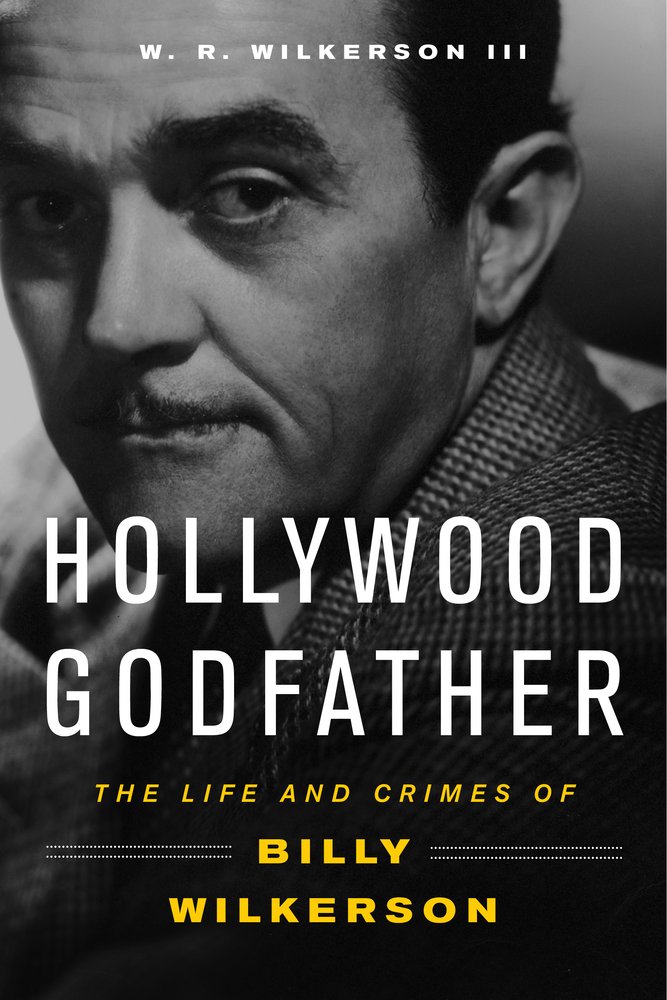Billy Wilkerson, Book 2, Part 4: Revenge and Rebirth as a Family Man
In 1938, William Richard “Billy” Wilkerson and Edith divorced. Once again, Billy wasn’t single long. According to the biography I’m reading, he met Estelle Jackson Brown in October 1939, and they were married by December 1939. Billy’s personal life was stable again, but his business empire was shaky. He’d sold Café Trocadero so he wouldn’t have to pay bribes anymore, and California cracked down on vices like gambling.
Billy wasn’t the only one with business problems. Joe Schenck began having trouble coming up with $100,000 in cash for Willie Bioff every month to avoid unions striking at his 20th Century Fox. In early 1939, he gave Bioff a $100,000 company check, knowing that if the gangster deposited it, that would be enough evidence for authorities to bring Bioff down. Schenck alerted authorities to the deposited check, which instigated an FBI investigation. Schenck had opened Pandora’s box.
With investigators’ scrutiny heightened, Schenck convinced Billy to revamp his new investment, Arrowhead Springs Hotel, three hours from Hollywood in San Bernardino. Billy agreed and turned the hotel into an exclusive getaway for the rich and famous. Unable to shake his old habit, he introduced gambling, which exploded in popularity. It was so popular that U.S. Marshals raided the hotel and shut it down.
In April 1941, Schenck was convicted of tax evasion and faced three years in prison. He agreed to testify against Bioff for a reduced sentence. In May 1941, Bioff was indicted for tax evasion and extortion, but he turned the tables. He entered federal witness protection and agreed to spill everything he knew to have all charges dropped. In 1942, Schenck began serving eighteen months but was released in four months after favors were called in. In December 1943, Johnny Rosselli was convicted of extortion and sentenced to ten years. The Hollywood Syndicate had collapsed, but Billy was never arrested. He narrowly escaped jail, but he couldn’t avoid another divorce. He and Brownie divorced in August 1942.
Around this time, Billy embarked on his Flamingo Hotel project and inadvertently ended up partnering with Bugsy Siegel, which I detailed in posts here, here, and here. In February 1946, Billie met 27-year-old Vivian Dubois at his Hollywood restaurant LaRue. In May they were married in Las Vegas. Billy started expressing his hatred for communism and displeasure that the U.S. didn’t stop Russia and Joseph Stalin from drawing an iron curtain around Eastern Europe. With the help of Howard Hughes, Billy obtained an FBI list of movie-industry people who supported communism. He then published editorials in the Reporter naming these people. Billy was a free speech advocate, but not when it came to communism. The Reporter’s sales increased, and other publications followed suit. Congress issued subpoenas, and studio heads were forced to testify. Billy created an anti-Communist movement. Many people on the Hollywood blacklist lost their jobs or were denied employment, even if they were innocent.
As this crusade was happening, movie studio bosses were grappling with competition from television and an antitrust lawsuit that reached the Supreme Court. In 1948, the Court ruled 7 to 1 that movie studios owning theatres constituted a monopoly. Studios tried to negotiate a compromise with the government, and Billy sensed that he could finally get revenge against the studios. He convinced recently paroled Rosselli, who was angry that studio bosses refused to help him after he got out of prison, to pressure government contacts Rosselli had paid off for years to reject any compromise from studios. The studios were forced to sell their theatres, their revenue declined, and they could no longer lock talent into long-term contracts. Actors and agents gained leverage by forcing studios to bid against each other for their services. After twenty years, Billy had finally exacted revenge on the studio bosses who rejected him and the studio system he hated.
In 1950, Billy and Vivian divorced, and in 1951, he met Beatrice Ruby Noble, known as Tichi. The 24-year-old was a housekeeper at Schenck’s beach house. Tichi became pregnant within a year, and after Billy realized she wasn’t trying to shake him down and medical tests confirmed he wasn’t sterile, the 60-year-old was excited to become a father. The two wed in 1951 and their son was born in October. Their daughter was born in 1953. Billy, now a family man, stopped gambling and started spending more time enjoying his wife and children.
Billy entertained the idea of selling the Reporter, but he decided to keep it. He continued running it in his mercurial style. Going to great lengths to end his partnership with Tom Seward after Seward sued him for paying gambling debts with partnership funds, Billy burned twenty years of business records. He ended up paying Seward $150,000 after much litigation, subpoenas, and search warrants, but he maintained complete control of his empire, which he ruled over until he died in 1962.
Billy was a complicated and flawed entrepreneur. Despite his shortcomings, he had a significant impact on Hollywood and entertainment in the United States. The Reporter is still in existence over ninety years after its founding.




